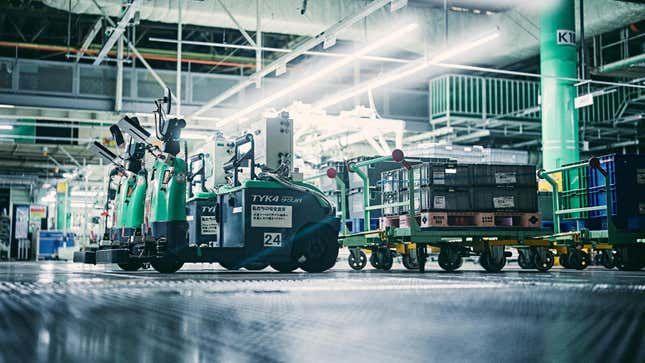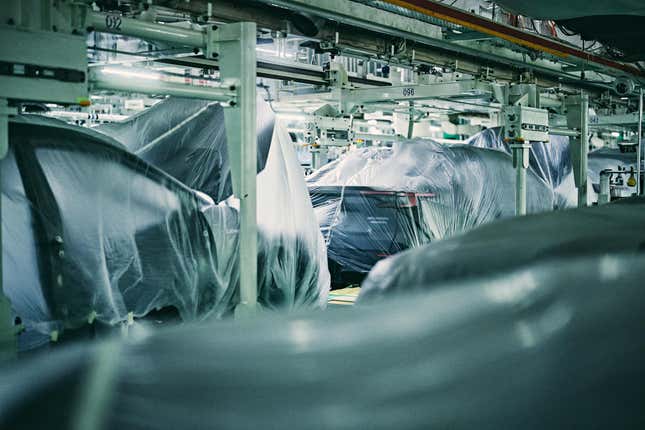Toyota has confirmed the halt at every one of its production facilities in Japan was not caused by a cyberattack. In late August, Toyota’s 14 Japanese production facilities went offline in a massive and inexplicable stoppage. Even early on, hackers weren’t on the list of suspects, and the real cause is much more embarrassing than a cyberattack: Toyota simply ran out of disk space.
The servers that Toyota uses to process parts orders underwent a mild system failure during routine maintenance, according to the Guardian. The bug didn’t surface until the system went online (or tried to, anyway) following the procedure on the next day. It would seem someone at Toyota forgot to defrag the disks. Or maybe the IT department forgot to wipe the memes from the desktop. I’d make another joke at Toyota’s expense, something about Toyota ponying up for more iCloud storage, but that one hits too close to home.

It’s no small thing for one of the world’s biggest automakers to overlook something as innocuous as disk space on its servers, only for the oversight to come back and freeze Toyota’s entire production in its home country. Oops.
The auto giant released the following statement about the stoppage:
We would like to apologize once again to our customers, suppliers, and related parties for any inconvenience caused by the suspension of our domestic plants as a result of the malfunction in our production order system at the end of last month.
The system malfunction was caused by the unavailability of some multiple servers that process parts orders. As for the circumstances, regular maintenance work was performed on August 27, the day before the malfunction occurred. During the maintenance procedure, data that had accumulated in the database was deleted and organized, and an error occurred due to insufficient disk space, causing the system to stop. Since these servers were running on the same system, a similar failure occurred in the backup function, and a switchover could not be made. This led to the suspension of domestic plant operations. The system was restored after the data was transferred to a server with a larger capacity on August 29, and the plants resumed operation on the following day. We would like to report that we have identified the above as the true cause. Countermeasures have also been put in place by replicating and verifying the situation […]
The automaker then goes on, again, about how it wasn’t hackers that did this. No way, José. This seems to be a sore point for Toyota ever since it suffered a similar systemwide shutdown following a cyberattack in February of 2022.
Given the relative harmlessness of a countrywide shutdown due to “insufficient disk space,” the fix was as easy as transferring the data to a server with greater capacity. Production resumed the following day with nary an issue at all 14 factories, which together yield one third of Toyota’s global production output.


